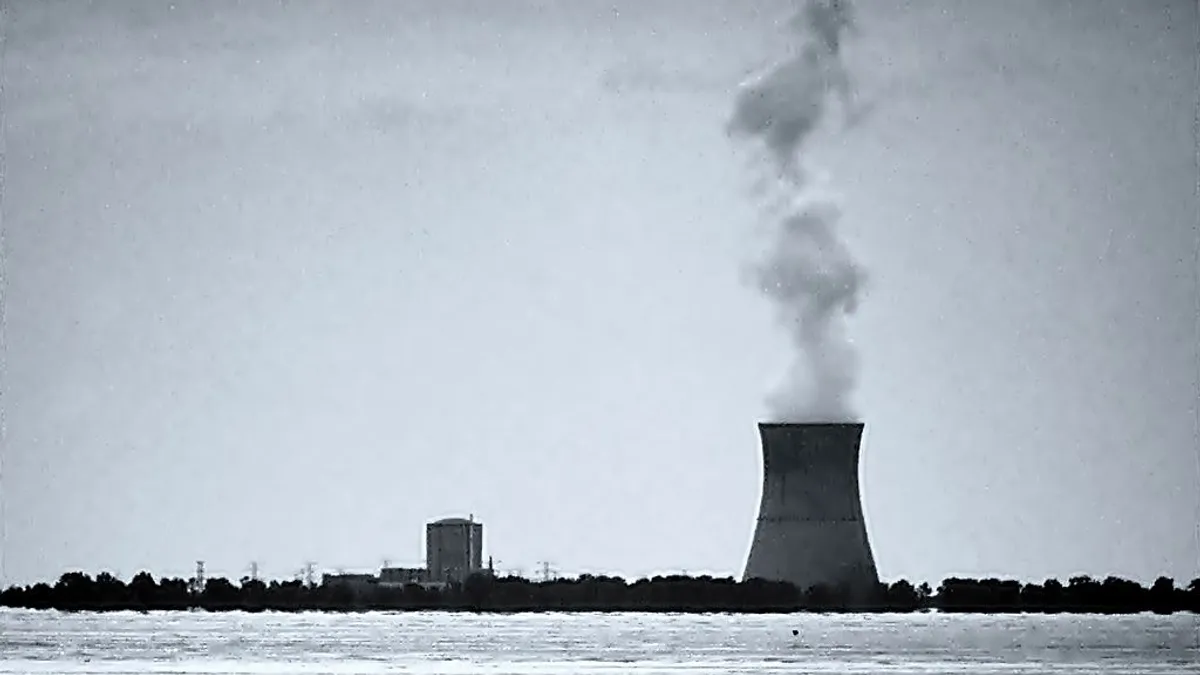Dive Brief:
- FirstEnergy Corporation announced on Thursday a settlement agreement to pay a $230 million penalty for bribing Ohio officials to ensure the passage of a ratepayer-funded bailout for older generation assets, including two nuclear plants.
- The utility cooperated with federal investigators to disclose paying millions through dark money groups to state officials, including former Ohio House Speaker Larry Householder and former Public Utilities Commision of Ohio (PUCO) Chairman Sam Randazzo. The company acknowledged using 501(c)(4) organizations, which are registered lobbying entities, to conceal the nature, source and control of payments in the pursuit of the nuclear legislation.
- Following the announced settlement, environmental and consumer advocacy advocates in the state called for Ohio politicians to be proactive in preventing further political influence from utilities. "We call on Ohio lawmakers to stop taking any and all donations from Ohio utilities, and instead focus on creating the best energy policy for Ohioans and our environment," Heather Taylor-Miesle, president of the Ohio Environmental Council (OEC) Action Fund, said in a statement.
Dive Insight:
An ongoing public corruption prosecution conducted by the U.S. Attorney's Office for the Southern District of Ohio led to a federal charge for conspiring to commit honest services wire fraud and a deferred prosecution agreement for the Akron, Ohio-based utility. The charge will be dismissed, provided that the utility cooperates with the government for the three-year period of the agreement.
The settlement announced on Thursday did not charge any individuals, but in October, the company fired former CEO Chuck Jones and two vice presidents connected to a $4.3 million payout to Randazzo ahead of his appointment as PUCO chair.
The details in the 49-page settlement agreement, in which FirstEnergy had to admit that company executives paid money to public officials in return for official action, has led to stakeholders raising questions about utility dark-money and political spending.
"FirstEnergy Corp. used the 501(c)(4) corporate form as a mechanism to conceal payments for the benefit of public officials and in return for official action. FirstEnergy Corp. used 501(c)(4) entities in this way because the law does not require disclosure of donors to a 501(c)(4) and there is no ceiling that limits the amount of expenditures that can be paid to a 501(c)(4) entity for the purpose of influencing the legislative process. This effort would not have been possible, both in the nature and volume of money provided, without the use of a 501(c)(4) entity," the utility said in a statement on Thursday.
Although some states have laws to prevent utilities from making direct campaign contributions to elected regulators, utilities can "get around it through executive contributions, employee contributions, trade associations and major business ties," Daniel Tait, research and communications manager for the Energy and Policy Institute, said in an e-mail.
FirstEnergy and its subsidiaries donated $59 million between 2017 and March 2020 to Generation Now, a group controlled by Householder. The company set up a group called Partners for Progress in February 2017 as a 501(c)(4), led by FirstEnergy lobbyists, through which they funneled $25 million "to entities associated with public officials" over two years, according to the federal disclosure.
Throughout 2021 and the rest of the three-year period of the settlement agreement, FirstEnergy must disclose all political donations, including to dark money groups. The deferred prosecution agreement requires the company to take various other steps to improve ongoing corporate compliance.
"Moving forward, we are intently focused on fostering a strong culture of compliance and ethics, starting at the top, and ensuring we have robust processes in place to prevent the type of misconduct that occurred in the past," Steven Strah, FirstEnergy president and CEO, said in a statement.
House Bill (HB) 6, signed into law in July 2019, created a bailout for the Perry and Davis-Besse nuclear power plants along Lake Erie for more than $1 billion. HB 128, signed into law at the end of March, would rescind that provision and would repeal a measure that allows FirstEnergy to collect money from customers even when energy demand is down, by basing its collection on energy demand in 2019, an "unusually lucrative" year, according to local reports. The legislature has left the HB 6 coal subsidies in place.
Neil Waggoner, senior campaign representative for Sierra Club's Beyond Coal Campaign in Ohio, called for lawmakers to repeal "what remains of" of HB 6, asking Ohio Gov. Mike DeWine, R, and the state legislature to take action and establish consumer protections against future utility influence and corruption.
The OEC Action Fund is also asking for a full repeal of HB 6 and has called for an investigation into every PUCO and Ohio Power Siting Board ruling made under Randazzo's tenure.
"Each case he presided over is possibly tainted by corrupt ties to FirstEnergy," Taylor-Miesle said.
"$230 million is a drop in the bucket compared to the incalculable cost from a loss in trust in the elected officials and regulators who are supposed to safeguard against corruption," Waggoner said in a statement.
In 2020, FirstEnergy earned $1.1 billion, the company disclosed in February.
The penalty it has agreed to pay surpasses the $200 million imposed by federal officials on Exelon's ComEd for bribery charges in Illinois, and is the largest fee imposed by the U.S. Attorney for the Southern District of Ohio on a company, according to a spokesperson.
Half of the fine will be paid to the United States, and the rest will be paid to the Ohio Development Service Agency's program that provides assistance to residents in paying their utility bills.














